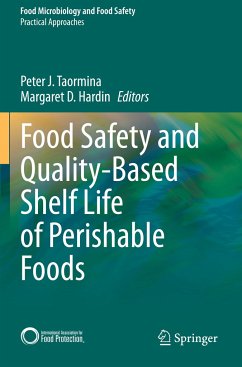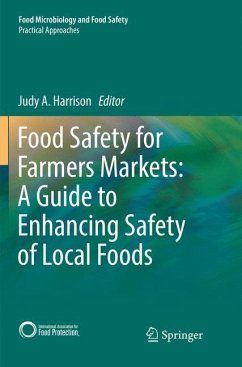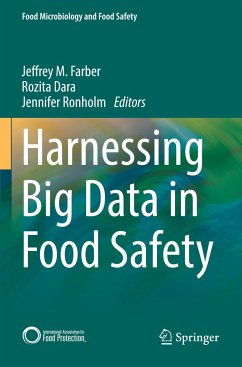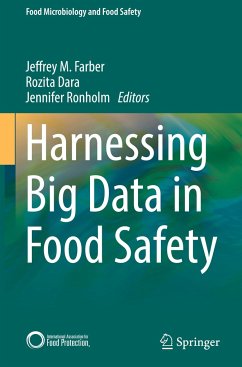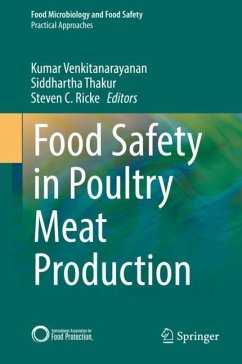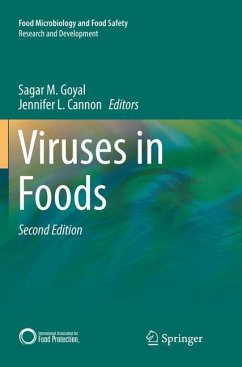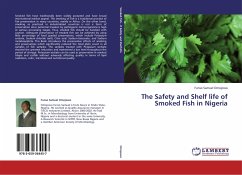
Food Safety and Quality-Based Shelf Life of Perishable Foods

PAYBACK Punkte
61 °P sammeln!
This book addresses the shelf life of foods, a key factor in determining how food is distributed and consequently where and when different food products are available for consumption. Shelf life is determined by several factors, including microbiological, chemical, physical, and organoleptic deterioration. Often these factors are interrelated and interdependent. The editors of this volume focus specifically on the microbial factors related to shelf life of perishable foods and food commodities. This allows for more detailed coverage of foodborne bacterial pathogens and spoilage microorganisms ...
This book addresses the shelf life of foods, a key factor in determining how food is distributed and consequently where and when different food products are available for consumption. Shelf life is determined by several factors, including microbiological, chemical, physical, and organoleptic deterioration. Often these factors are interrelated and interdependent. The editors of this volume focus specifically on the microbial factors related to shelf life of perishable foods and food commodities. This allows for more detailed coverage of foodborne bacterial pathogens and spoilage microorganisms of concern.
The initial part of the book covers the why and how of shelf life determination as well as the specific microbial pathogens and spoilage microorganisms of concern for perishable foods. Contributors address topics such as the techniques utilized for determination of shelf life, the frequency of shelf life testing for different products, the interpretation of data to make shelf life determinations, and management of shelf life of food products from the perspective of the food producer, distributor, retailer, and regulator. Three key areas impacting shelf life are addressed in detail: sanitation, processing, and packaging. The sanitation chapter explains the necessary components of cleaning and sanitizing to assure a hygienic processing environment and why that is critical to shelf life control. Traditional processing procedures are reviewed and advanced processing technologies are explored. Materials used in food packaging and the utilization of traditional and activated food packaging by product type are covered in detail. The latter two chapters of the book delve into newer techniques of analysis and explore the microbiome of food products. Implications of microbial ecology and microbial quantification in food products are discussed in chapters on genomics and in the changing dogma of meat shelf life.
The primary audience forthis work includes food industry quality and food safety technicians, managers, directors, and executives responsible for shelf life. Academicians and governmental researchers involved in research and teaching about food safety and quality will also find the material relevant and useful.
The initial part of the book covers the why and how of shelf life determination as well as the specific microbial pathogens and spoilage microorganisms of concern for perishable foods. Contributors address topics such as the techniques utilized for determination of shelf life, the frequency of shelf life testing for different products, the interpretation of data to make shelf life determinations, and management of shelf life of food products from the perspective of the food producer, distributor, retailer, and regulator. Three key areas impacting shelf life are addressed in detail: sanitation, processing, and packaging. The sanitation chapter explains the necessary components of cleaning and sanitizing to assure a hygienic processing environment and why that is critical to shelf life control. Traditional processing procedures are reviewed and advanced processing technologies are explored. Materials used in food packaging and the utilization of traditional and activated food packaging by product type are covered in detail. The latter two chapters of the book delve into newer techniques of analysis and explore the microbiome of food products. Implications of microbial ecology and microbial quantification in food products are discussed in chapters on genomics and in the changing dogma of meat shelf life.
The primary audience forthis work includes food industry quality and food safety technicians, managers, directors, and executives responsible for shelf life. Academicians and governmental researchers involved in research and teaching about food safety and quality will also find the material relevant and useful.



